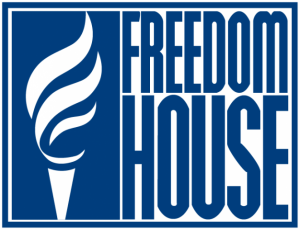Freedom House: Internet Freedom and Freedom of the Press High in Georgia
Freedom House has released a report entitled ‘Freedom on the Net’ evaluating access to the Internet, censorship and the rights of internet users in 65 countries around the world.
According to the report, Georgia is ranked as free in terms of internet freedom as well as the freedom of the press. The report says internet access and usage continues to grow rapidly in the country, particularly as interest in connecting with friends through social networks has increased in recent years.
“State bodies and several key politicians have also increased their use of the internet and modern social media tools to share information with citizens and attract attention from the potential electorate. The government continues to set up new online services, including the portal Data.gov.ge which is intended to unite all major government data sets in the near future. However, not all government institutions express willingness to communicate effectively and directly with citizens; as a consequence, one-way interaction prevails on the websites of these agencies.
“On November 30, 2014, the parliament of Georgia adopted controversial amendments related to surveillance and wiretapping. The amendments establish a “two-key system,” where one “key” to surveillance records is kept in the Ministry of Internal Affairs (MIA) and the other at the Personal Data Protection Inspector’s Office, who must verify that the surveillance action taking place is in accordance with an obtained court order. A court order is required for wiretapping or for accessing the content of communications; metadata is accessible without a warrant. There are still concerns that allowing the MIA to maintain direct access to telecom operators’ networks could compromise privacy protections” the report underlines.
According to the official information, the mandate to extend the powers of the Personal Data Protection Inspector, implemented on November 1, 2014, as well as measures to enhance national legislation related to protection of privacy, and to establish efficient guarantees for the protection of human rights and freedoms, in compliance with international standards, can be highlighted as positive developments for safeguarding ICT users’ rights. “If the new agency is given sufficient power to operate and remain autonomous in its functions, there might be tangible and substantial improvements to consumers’ rights in the near future.”
Freedom House concluded that the number of internet and mobile phone subscriptions in Georgia continue to grow, but the high prices for services. Inadequate infrastructure, and slow internet speeds remain obstacles, particularly for those in rural areas or those with low incomes. “The government has announced plans to address these challenges during the next few years, however the exact strategy to overcome the digital divide has not yet been outlined.”












